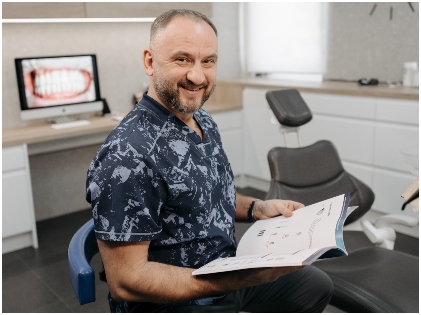
Opting for Dental Implants? Here’s What you Need to Know About Insurance Coverage

Getting dental work is never easy, in fact, it can turn out to be pretty expensive. Just sitting on the chair in a dentist’s clinic and getting a basic procedure done, can drill a hole in your pocket. That’s where insurance steps in, so learn more about health insurance policies that can stop you from putting away your dental treatment appointments. Here are a few things to know before you finalize the procedure.
Can You Get Group Coverage?
 Most people who are working on dental insurance enjoy benefits either through their employer or from other group coverage programs read as AARP, Affordable Care Act marketplace that offers health insurance benefits, and offers public health programs such as TriCare for the military, Medicaid, and Children’s Health Insurance Program (CHIP). These plans besides being easy on the pockets may also boast of many more benefits. But first things first you need to choose employer-based insurance that may provide good benefits. Find out whether the premiums you are spending are worth the money you are spending on. It is always important to get group insurance if you are selecting dental insurance. It does not mean that the plan is right for you, so go through the specifics before committing to an insurance plan.
Most people who are working on dental insurance enjoy benefits either through their employer or from other group coverage programs read as AARP, Affordable Care Act marketplace that offers health insurance benefits, and offers public health programs such as TriCare for the military, Medicaid, and Children’s Health Insurance Program (CHIP). These plans besides being easy on the pockets may also boast of many more benefits. But first things first you need to choose employer-based insurance that may provide good benefits. Find out whether the premiums you are spending are worth the money you are spending on. It is always important to get group insurance if you are selecting dental insurance. It does not mean that the plan is right for you, so go through the specifics before committing to an insurance plan.
Choosing Individual Policies
Individual health insurance policies are very often chosen over group policies. Whether you are buying a single policy or choosing one for your entire family, this coverage may not be what it shows it is. Their benefits aren’t too many and you have to wait for a longer time to get all the major procedures approved. If you need to plan for your insurance, this may not be the right one for you, because you may need implants or just a set of dentures. Insurers are aware of the tactic and introduce a waiting period before you begin to enjoy the benefits (a few months to a year), the waiting period depends on the kind of procedure you may want to go for. However, you can also go through certain insurance policies whose waiting period may be short, but may cost you a lot of money,
The Go-to Dentists
 If you already have a favorite dentist, then ask them first which are the insurance plans they can accept. In this case, indemnity insurance plans may help you choose the dentist of your choice. However, in some cases such as PPO and HMO plans it can limit you to the type of dentists you may have in their networks. If you don’t want a new dentist on board, you can select PPO or HMO catering to your specific needs. However, you still need to be wary as in-network dentists may recommend a lot of unnecessary procedures that you may not need in the first place. They recommend it because the dental insurance providers reimburse them.
If you already have a favorite dentist, then ask them first which are the insurance plans they can accept. In this case, indemnity insurance plans may help you choose the dentist of your choice. However, in some cases such as PPO and HMO plans it can limit you to the type of dentists you may have in their networks. If you don’t want a new dentist on board, you can select PPO or HMO catering to your specific needs. However, you still need to be wary as in-network dentists may recommend a lot of unnecessary procedures that you may not need in the first place. They recommend it because the dental insurance providers reimburse them.
The Policy Matters
Always take a good look at the policies you need to consider so that you can set a clear budget for the dental expenses, that covers certain emergency costs. For instance, there is the AARP Delta PPO Plan B that may cover procedures such as dental exams, fillings, cleanings, X-rays, root canals, tooth removals, root canals, and more right from the time the procedures begin. However, to avail of the other complicated procedures such as dental implants, crown treatments, and other dental treatments you need to wait at least a year. Even after all that waiting, your insurer will only cover 50% of the costs.
What You May Need to Pay From Out of Pocket
 If anyone from your family needs some major dental procedure, you may end up paying more from your pocket than you would like. Whether it is an individual policy or group insurance policy, the benefits are nothing to write home about. Also, you may have to wait for long waiting periods and it may involve a lot of out-of-pocket spending. So, plan ahead and ask your friends and family members about the insurance policy they benefited the most from.
If anyone from your family needs some major dental procedure, you may end up paying more from your pocket than you would like. Whether it is an individual policy or group insurance policy, the benefits are nothing to write home about. Also, you may have to wait for long waiting periods and it may involve a lot of out-of-pocket spending. So, plan ahead and ask your friends and family members about the insurance policy they benefited the most from.
Say, you need to schedule a dental implant procedure in two years’ time, get a dental insurance policy right now! So, you can get the benefits in a year’s time. Let us know in the comments section below what worked for you and what didn’t.
More in Anti-Aging
-
`
Jennifer Aniston’s Timeless Tips for Health and Youthfulness
Iconic Hollywood actress Jennifer Aniston has long been admired for her acting prowess and seemingly ageless beauty and vitality. Now in...
November 22, 2023 -
`
Unleash Your Entrepreneurial Drive: 5 Strategies for Self-Motivation
5. Have an Undying Passion Passion is the driving force behind the world’s most successful entrepreneurs. Self-motivation becomes second nature when...
November 19, 2023 -
`
How to Go Vegan – The Right Way!
The vegan lifestyle has seen a significant surge in popularity lately, and rightly so. Embracing veganism not only fosters personal health...
November 12, 2023 -
`
7 Eye-Opening Reasons to Drink More Water
Water is frequently hailed as the quintessential elixir for life, and rightfully so. Constituting approximately 60% of our total body weight,...
November 1, 2023 -
`
Drake’s Workout Regimen: How the Canadian Rapper Stays Fit
The lights dim, the stage is set, and the crowd’s anticipation is palpable. When the beat drops, there is one Canadian...
October 24, 2023 -
`
Why Six-Figure Family Holidays Are Becoming the New Normal
In the panoramic landscape of the modern travel scene, a particularly glittering trend is emerging, akin to finding a diamond the...
October 21, 2023 -
`
Foods With High Water Content
Water is the elixir of life, and staying adequately hydrated is crucial for maintaining our health and well-being. While sipping on...
October 15, 2023 -
`
The Impact of Wearable Technologies in Health Research
In recent years, wearable technologies have emerged as a powerful tool in health research, revolutionizing how we collect and analyze data...
October 3, 2023 -
`
How Celebrities Stay Fit? Secrets of Chris Pratt, Jennifer Lopez & More
The glitz and glamor of Hollywood may make it seem impossible for celebrities to maintain an enviable physique. But it is...
September 29, 2023















You must be logged in to post a comment Login